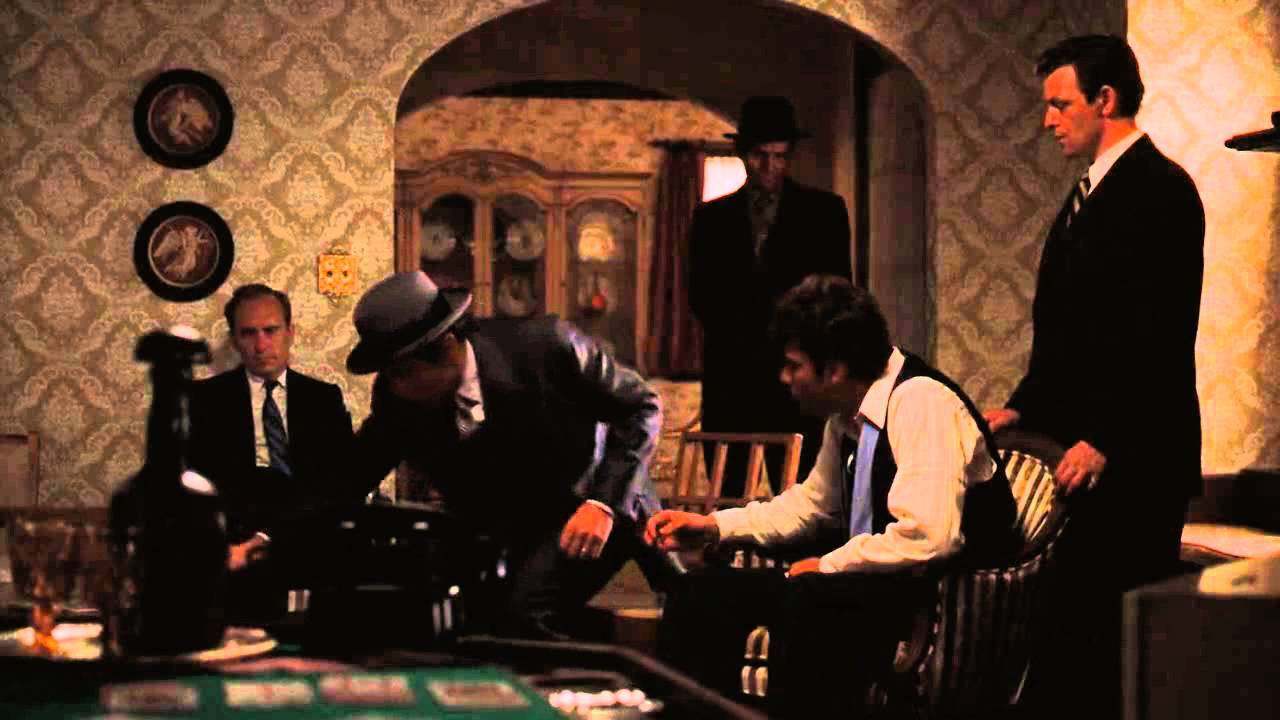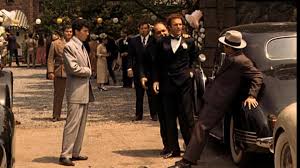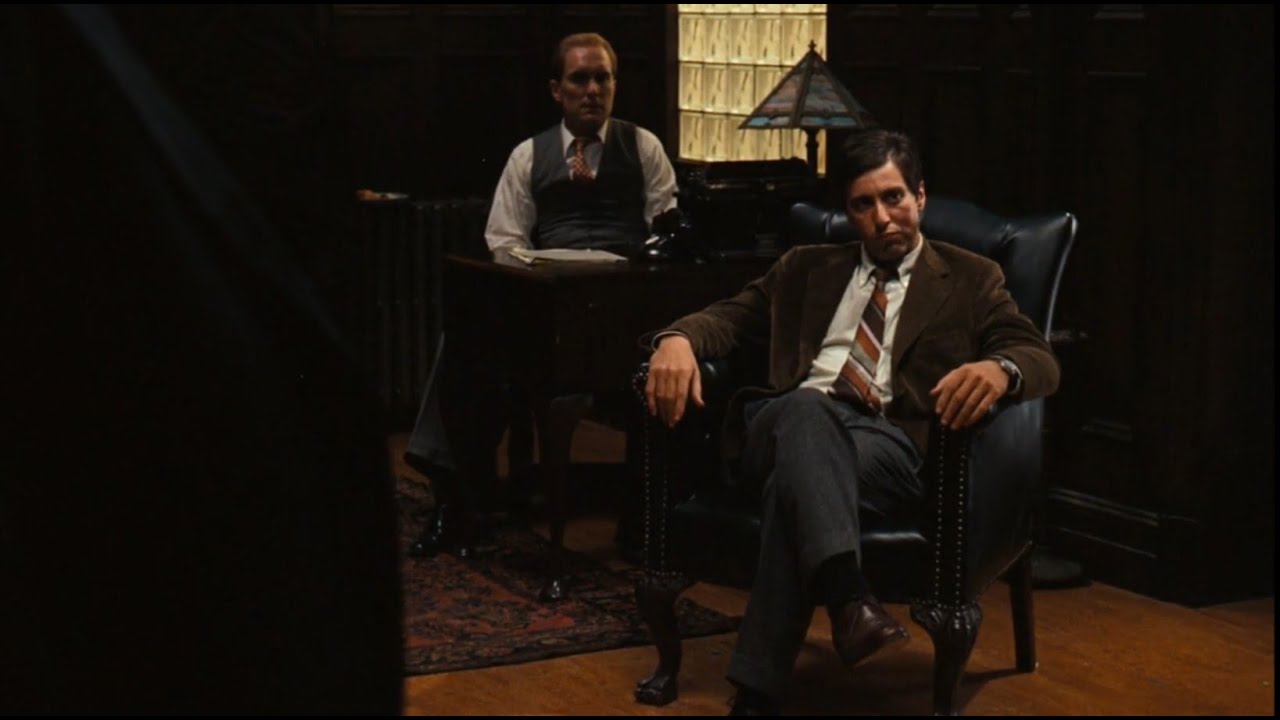🎬 The Godfather (1972)

🎬 Introduction to The Godfather (1972)
The Godfather (1972), directed by Francis Ford Coppola, is a landmark film in cinema history, widely regarded as one of the greatest films ever made. Adapted from Mario Puzo’s bestselling novel, the film follows the powerful and complex Corleone family, led by patriarch Vito Corleone (Marlon Brando), as they navigate the dangerous world of organized crime in post-World War II New York. At its core, The Godfather is a family drama, with the criminal empire merely serving as the backdrop for the exploration of loyalty, power, betrayal, and tradition.
The story centers around Michael Corleone (Al Pacino), the youngest son of Vito Corleone, who is initially resistant to joining the family business. However, after a brutal attack on his father and escalating violence within the mafia world, Michael is drawn into the family’s criminal operations, setting off a chain of events that leads to his moral and personal transformation. The Godfather weaves a compelling narrative that explores themes of loyalty, justice, and the corrupting influence of power, all while delivering iconic performances, unforgettable lines, and a rich, atmospheric depiction of postwar America. This film would go on to influence an entire genre and leave a lasting legacy in both film history and popular culture.
🎬 Performances and Character Development
One of the most remarkable aspects of The Godfather is its ensemble cast, each member delivering a performance that is both nuanced and unforgettable. Marlon Brando’s portrayal of Vito Corleone is legendary, earning him an Academy Award for Best Actor. Brando’s commanding presence, coupled with his distinctive, gravelly voice and quiet demeanor, makes Vito Corleone one of cinema’s most iconic characters. His ability to convey power, vulnerability, and a deep sense of honor is unmatched, and the film’s opening scene, in which he receives requests for favors on the day of his daughter’s wedding, perfectly sets the tone for his character’s complexity.
Al Pacino’s performance as Michael Corleone is equally masterful. Michael’s transformation from a reluctant outsider to a calculating mafia don is the emotional core of the film. Pacino perfectly captures Michael’s internal struggle as he becomes more deeply entangled in his family’s violent world. His character arc is one of the most compelling in cinematic history, as Michael grapples with his own identity, loyalty to his family, and the consequences of his decisions. Pacino’s portrayal of Michael is a delicate balance between vulnerability and ruthlessness, and his journey serves as a powerful commentary on the corrupting nature of power.
Supporting performances by actors such as Marlon Brando, James Caan (as Sonny Corleone), Richard S. Castellano (as Clemenza), and Diane Keaton (as Kay Adams) are integral to the film’s success. Each character adds depth to the story, whether it’s Sonny’s impulsive nature, Clemenza’s loyalty, or Kay’s growing realization of Michael’s descent into darkness. The relationships within the Corleone family are complex and deeply human, making their eventual fates all the more poignant.
🎬 Themes and Symbolism
At its core, The Godfather is a meditation on power, family, and the costs of loyalty. The film delves into the intricacies of organized crime and the ways in which individuals navigate the blurred lines between right and wrong. It explores the theme of family as both a source of strength and a source of destruction. Vito Corleone’s desire to protect and provide for his family is at odds with the violent means he uses to maintain power, and this conflict is reflected in the generational struggle within the Corleone family.
The film also explores the theme of identity and the personal cost of leadership. Michael’s transformation from an outsider to the head of the family is emblematic of the dangerous allure of power. As he becomes more entrenched in the mafia world, Michael begins to lose touch with his humanity, making increasingly ruthless decisions that ultimately cost him his moral compass. His journey is marked by moments of self-doubt and guilt, but it is also a sobering exploration of how far someone will go to protect their family and maintain their power.
The film’s use of symbolism—particularly through its visual motifs and repeated imagery—adds an extra layer of depth to its storytelling. One of the most notable symbols is the recurring use of the color red, which represents both the violence of the mafia world and the passion of familial ties. Another striking symbol is the recurring image of the Corleone family’s kitchen, which serves as a metaphor for the family’s inner workings—both a place of warmth and a site of great darkness.
🎬 Legacy and Conclusion
The Godfather has become an indelible part of film history, earning its place as one of the greatest movies of all time. It was a massive commercial and critical success, earning numerous accolades, including three Academy Awards, including Best Picture. The film’s influence extends far beyond the Godfather series, shaping the genre of organized crime films and serving as a touchstone for filmmakers around the world. Its iconic dialogue, memorable characters, and richly layered storytelling have ensured that it remains a cornerstone of American cinema.
Its legacy has endured through the decades, not only through its sequels, The Godfather Part II (1974) and The Godfather Part III (1990), but through countless cultural references, parodies, and homages in modern cinema and television. The film’s themes of family, loyalty, and power continue to resonate with audiences, and its impact on popular culture is immeasurable.
In conclusion, The Godfather (1972) is not just a film—it is a timeless epic that transcends the boundaries of genre and remains a powerful exploration of family, power, and the human condition. With its remarkable performances, exquisite direction, and masterful storytelling, The Godfather stands as a monumental achievement in filmmaking and continues to influence the cinematic world today. Its lasting legacy ensures that it will remain a beloved and revered classic for generations to come.











